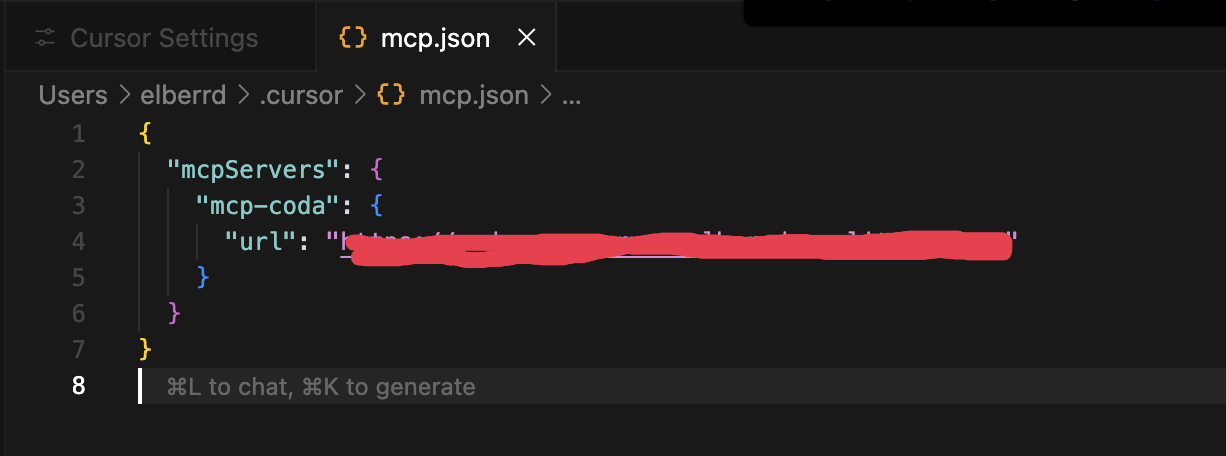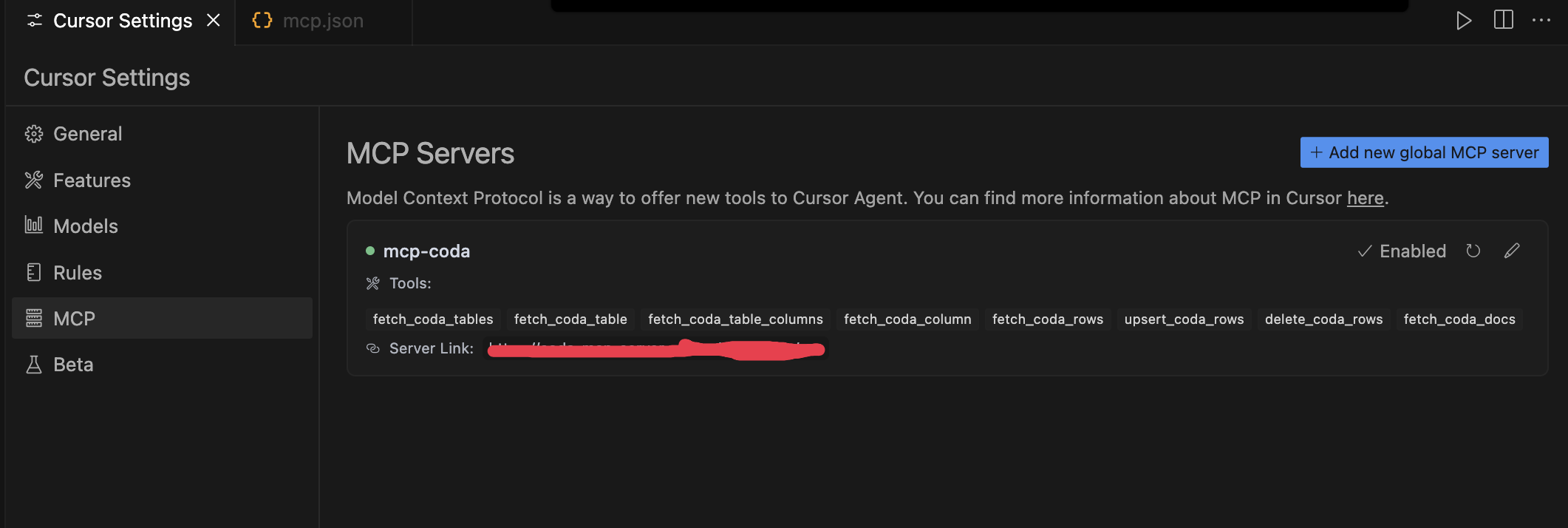What is MCP Server - Coda.io?
MCP Server - Coda.io is a Model Context Protocol (MCP) server implementation designed for seamless integration with Coda's API, enabling efficient document, table, and data management.
How to use MCP Server?
To use the MCP Server, clone the repository, set up your environment with a Coda API key, install dependencies, and run the server. You can then access various endpoints for managing Coda documents and tables.
Key features of MCP Server?
- Fetch and manage tables and rows from Coda documents.
- Upsert and delete rows in tables.
- Comprehensive error handling and logging.
- Built with Express.js and TypeScript for robust performance.
Use cases of MCP Server?
- Automating data management tasks in Coda documents.
- Integrating Coda with other applications for enhanced functionality.
- Building custom tools that leverage Coda's API for data manipulation.
FAQ from MCP Server?
- What are the prerequisites for using MCP Server?
You need Node.js (v20 or higher) and a Coda API key.
- How do I run the server?
After building the project, you can start the server using
node dist/index.js.
- Is there any error handling implemented?
Yes, the server includes comprehensive error handling for environment variables, API responses, and request parameters.
MCP Server - Coda.io
A Model Context Protocol (MCP) server implementation for seamless integration with Coda's API, providing various tools for document, table, and data management.
Features
- Table Operations
- Fetch all tables from a document
- Retrieve specific table data
- Get table columns information
- Row Management
- Fetch rows from tables
- Upsert (insert/update) rows
- Delete rows
- Column Operations
- Fetch specific column details
- Get column metadata
Prerequisites
- Node.js (v20 or higher)
- A Coda API key
- TypeScript knowledge (for development)
Environment Setup
- Clone or fork this repository in Replit
- Create a
.envfile in the root directory:PORT=8000 CODA_API_KEY=your_coda_api_key_here - Replace
your_coda_api_key_herewith your actual Coda API key
Installation
The project uses npm for dependency management. To install dependencies:
npm install
Building the Project
Compile TypeScript files to JavaScript:
npx tsc
Running the Server
After building, start the server:
node dist/index.js
Or use the combined command:
npm install && npx tsc && node dist/index.js
The server will start on port 8000 by default, with the following endpoints available:
- GET
/sse- SSE connection endpoint - POST
/messages- Message handling endpoint
Available Tools
-
fetch-coda-docs- Fetches all available Coda documents
- Optional parameters: isOwner, limit
-
fetch-coda-tables- Fetches all tables from a specified document
- Required parameter: docId
-
fetch-coda-table- Fetches a specific table from a document
- Required parameters: docId, tableId
-
fetch-coda-table-columns- Retrieves columns information for a specific table
- Required parameters: docId, tableId
-
fetch-coda-rows- Fetches rows from a specified table
- Required parameters: docId, tableId
-
upsert-coda-rows- Inserts or updates rows in a table
- Required parameters: docId, tableId, rows
-
delete-coda-rows- Deletes specified rows from a table
- Required parameters: docId, tableId, rowIds
Error Handling
The server implements comprehensive error handling:
- Environment variable validation
- API response validation
- Request parameter validation
- Proper error messages and logging
Development
The project is structured as follows:
src/
├── tools/ # Individual tool implementations
│ ├── fetch-coda-docs.tool.ts
│ ├── fetch-coda-tables.tool.ts
│ └── ...
└── index.ts # Main server implementation
Built With
- Express.js - Web framework
- @modelcontextprotocol/sdk - MCP implementation
- Zod - Runtime type checking
- dotenv - Environment configuration
Known Limitations and Future Improvements
The current implementation of tools requires several improvements:
- Enhanced JSON response handling and formatting
- Implementation of pagination for large datasets
- Better error handling and retry mechanisms
- Rate limiting implementation
- Batch processing for large operations
- Caching mechanisms for frequently accessed data
- There is more API tools to implement based on the documentation
MCP Client Implementation Example
Here are examples of how to implement this MCP server in Cursor:
-
Configure the MCP server in Cursor's
mcp.json:
-
Enable and use the available tools in Cursor's settings:

License
This project is licensed under the ISC License.







